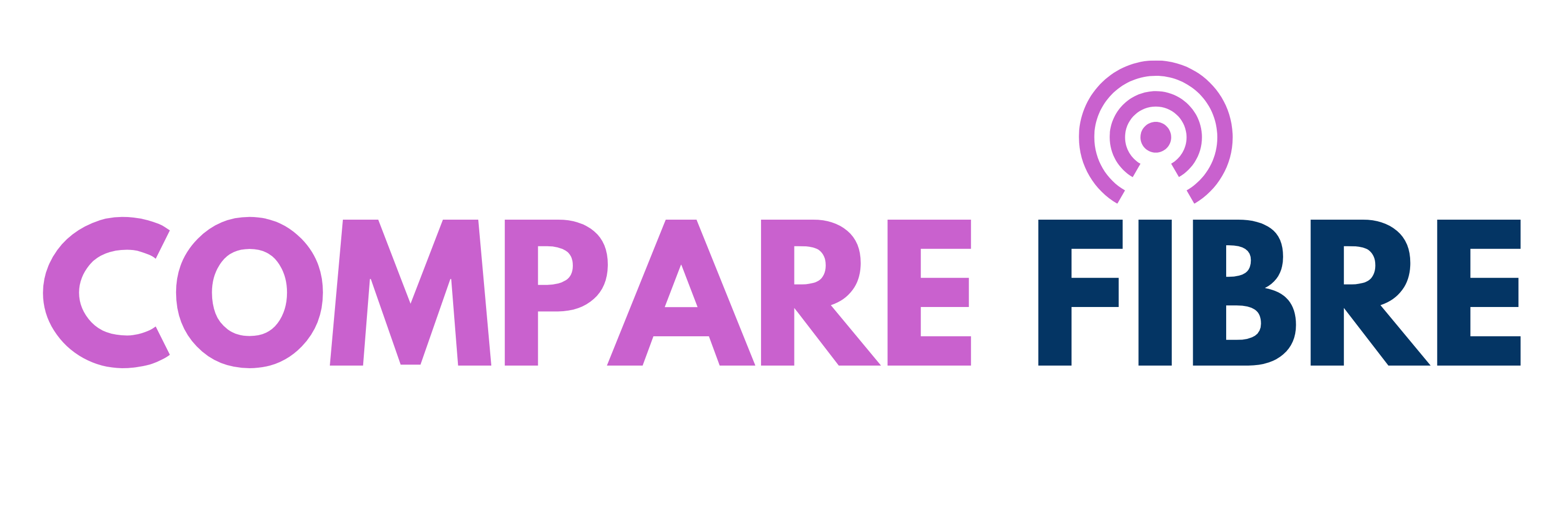Types of Broadband in the UK: The complete guide
When looking for the best broadband deals, UK consumers are often confused when it comes to connection types. There is a wide range of broadband types available to select from but choosing the right option for your needs requires considering many different factors. How fast a connection you require and how much you are willing to pay for speed and service are important questions to ask, along with where and how you will use your broadband.
In this blog, we’ll take an in-depth look at some of the options available and what they offer to help you narrow the field.
What are the types of broadband in the UK?
Here in Britain, there are six main options for broadband that customers can select from. These are ADSL, FTTP, FTTC, Gigabit, Satellite and mobile.
ADSL
Asymmetric Digital Subscriber Line (ADSL) is an older broadband type but remains exceptionally popular. ADSL connections work via the copper wires in existing phone lines and are mainly used for either home broadband or by start-ups and small businesses.
ADSL offers a high-quality, dependable broadband connection and permits fast data transmission via a single connection. It allows users to make phone calls while using the internet and has minimal maintenance and installation costs. Average prices for ADSL are around £17.99 a month and recorded speeds for upload and download are up to 8Mbps and 24Mbps respectively.
FTTP (Full Fibre)
Fibre to the Premises (FTTP) is a type of broadband technology providing fast internet speeds. FTTP is full-fibre, which means that the internet connection from your local exchange is connected directly to the router at your place of business or home. As a result, it is much faster than using the copper telephone lines employed by many broadband services.

Speeds of 1Gbps or more are possible but faster internet comes with a higher price tag. Average prices for FTTP broadband are between £35 and £45 per month. Companies with a bigger budget that require fast internet will find FTTP a useful option.
FTTC (Part Fibre)
Fibre to the Cabinet (FTTC) is a type of broadband technology that delivers slower speeds compared to FTTP. Unlike FTTP which connects your premises to the local exchange directly, FTTC uses fibre cables that stop at a street cabinet. From this point, the conventional copper cabling is employed to pipe data to the router on your property.
As you would expect, the speed of FTTC broadband is impacted by how far your premises is located from the street cabinet. For example, properties that are only 100 metres from the cabinet can enjoy upload speeds of 25Mbps and download speeds of 100Mbps. At the other end of the scale, premises that are 1500 metres from the cabinet will have upstream speeds of 4Mbps and downstream speeds of 15Mbps. The price of FTTC is between £20 to £30 per month.
Gigabit broadband
Gigabit-capable broadband is a type of connection that allows users to enjoy very high download speeds of 1 Gbps at the very least. At this rate, a user could download a high-definition film in less than a minute. Enterprises in need of a rapid connection will find Gigabit broadband an option worth considering. It can be provided using a wide range of different technologies including high-speed cable broadband and full-fibre connections.
Users can purchase different speeds to suit their needs ranging between 30Mbps to 900Mbps and the average price of Gigabit-capable broadband is impacted accordingly but start at around £35 per month.
This is the most illusive type of fibre broadband in the UK, with the Government’s Project Gigabit rollout currently aiming to create access to 85% of the UK by 2025, so if it isn’t available to you yet, it may be soon.
Satellite broadband
Enterprises in remote areas where cable, mobile and ADSL broadband are not possible may have the option to access the internet via satellite depending on their location. Rates for uploads and downloads can vary greatly, but after undertaking a speed test, one of the latest options, Starlink internet, recorded speeds of 300Mbps far exceeding the UK average of 64Mbps.
While satellite internet services offer low latency and fast speeds, they are exceptionally expensive to access. Average prices are over double the cost of most gigabit-speed broadband services and stand at £89 a month. However, for firms that must operate in rural areas, while expensive, satellite broadband may well be the best solution available.
Mobile broadband
Sometimes referred to as wireless broadband, Mobile broadband allows users to connect a portable device to the internet wirelessly, using a 3G and 4G mobile phone network. Exceptionally flexible, mobile broadband can be a useful option for individuals who must work while on the move. It is worth noting however, that download speeds can often be slow and network coverage is far from universal, particularly in rural and remote locations.
Average mobile broadband download speeds in the UK are around 27Mbps and upload speeds are 11.6Mpbs- although providers like National Broadband go beyond this. Due to their slower speeds, mobile broadband costs are typically the lowest cost option but vary from deal to deal. While average costs can be as little as £11 per month, exceeding data allowances can increase the price dramatically.
What types of broadband are available to me?
Finally, the type of broadband you can access will always be affected by your location. If you are located close to a local exchange or street cabinets, you’ll find a wealth of options to choose from, but if you are based in a more remote or rural area you will likely have a more limited selection. Your location can also affect which broadband infrastructure network you have access to. The most likely candidates are Openreach or CityFibre, but independent providers can have their own networks too.

Fortunately, useful tools such as a postcode or broadband checker- like Compare Fibre postcode checker, will allow you to enter the address of your premises and will give you a list of potential options available.
